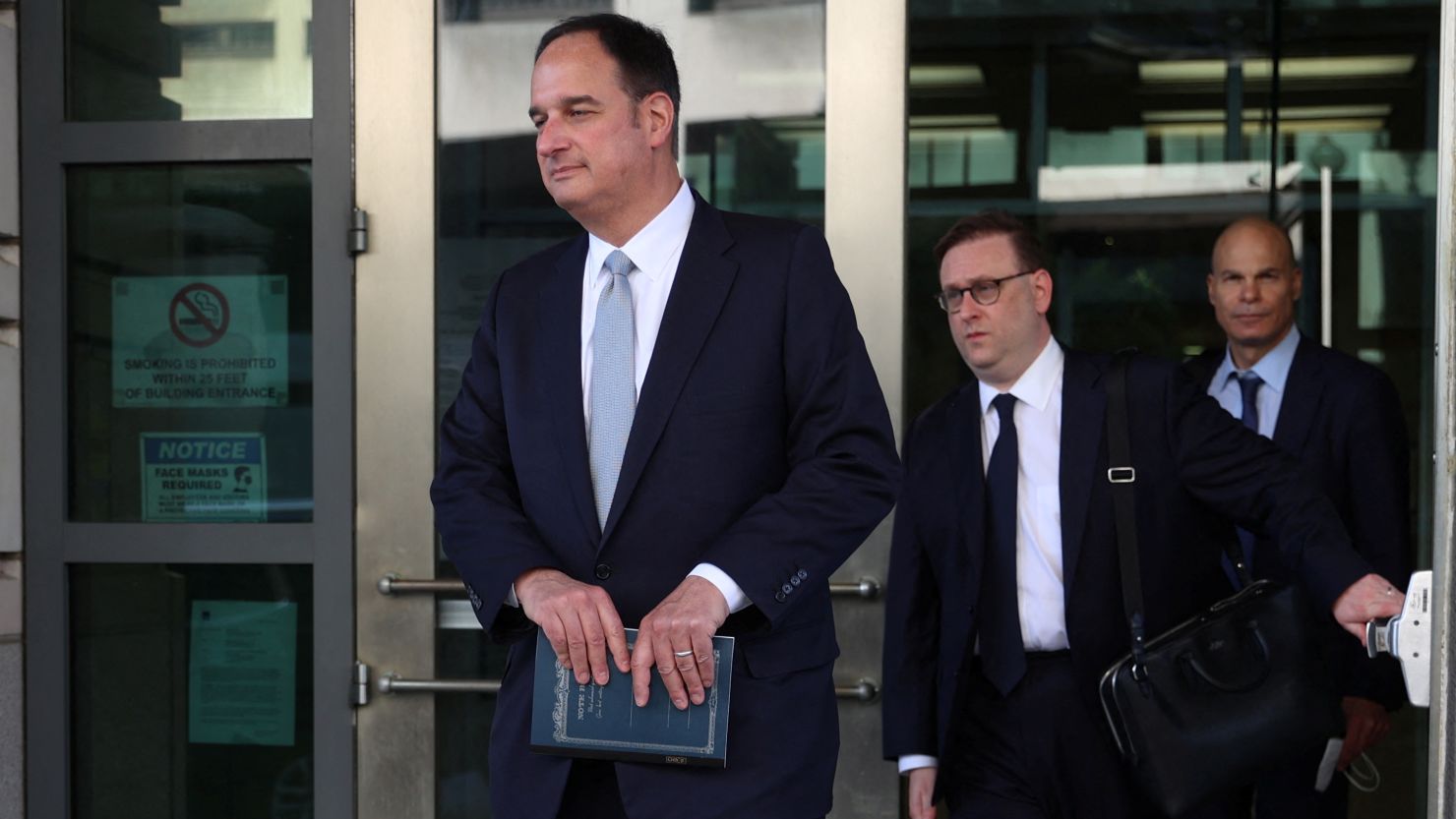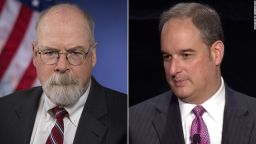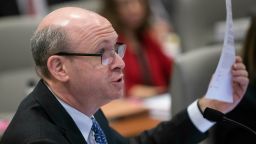The jury in the trial of Michael Sussmann, the Hillary Clinton campaign lawyer charged by special counsel John Durham as part of his inquiry into the origins of the FBI’s Trump-Russia probe, will resume deliberations on Tuesday.
Sussmann is charged with one felony count of making a false statement to the FBI. The 12-member jury, made up of seven women and five men, and contains five people of color, deliberated for roughly four hours Friday before leaving for the three-day weekend.
Special counsel prosecutors said during closing arguments that there is “overwhelming” evidence that Sussmann “concealed” his Clinton campaign ties and cloaked his work under the guise of cybersecurity to peddle an unfounded Trump-Russia tip to the FBI.
“It wasn’t about national security,” prosecutor Jonathan Algor told the jury. “It was about promoting opposition research about the opposition candidate, Donald Trump.”
Prosecutors allege that Sussman lied to then-FBI general counsel James Baker on September 19, 2016, while passing along a tip about possible connections between the Trump Organization and Kremlin-linked Alfa Bank. Sussmann is accused of falsely telling Baker that he wasn’t there on behalf of any client, even though, according to Durham, he was there on Clinton’s behalf. (The FBI didn’t find any illicit activity after a four-month probe.)
The case is the first major courtroom test for Durham, the Trump-era prosecutor who has spent three years looking for misconduct in the FBI’s Russia probe, but hasn’t delivered the bombshell indictments that Trump has predicted.
A conviction might boost Durham’s credibility, while an acquittal could vindicate his critics, who say he’s running a politicized probe into flimsy theories.
Sussmann’s lawyers accused Durham on Friday of trying to “misdirect” the jury by coaching and coercing witnesses to secure a conviction in a case that “doesn’t make any sense at all” and “should’ve never been brought” in the first place.
“The time for political conspiracy theories is over,” defense attorney Sean Berkowitz said during closing arguments. “The time to talk about the evidence is now.”
He claimed Durham “tried to break” a key witness by threatening prosecution, and cherry-picked a massive trove of emails and government documents to fit his case against Sussmann.
“Any piece of evidence that doesn’t fit their tunnel-vision theory, they ignore,” Berkowitz said.
He also rebutted the prosecution’s focus on “opposition research” during its closing statements, which meticulously showed how Sussmann worked with the Clinton campaign’s top lawyer and researchers funded by the campaign to collect and peddle anti-Trump material to the media.
“Opposition research is not illegal,” Berkowitz said. “If it were, the jails of Washington, DC, would be teeming over.”
Sussmann, who has pleaded not guilty, could face up to five years in prison if convicted, though there’s no guarantee he would serve any time behind bars, and he’d likely get a lesser sentence as a first-time offender.
The two-week trial revisited many of the most controversial moments of the 2016 presidential election, and featured witness testimony from two senior Clinton campaign officials, and an array of top FBI and Justice Department officials who handled the Trump-Russia investigation.






